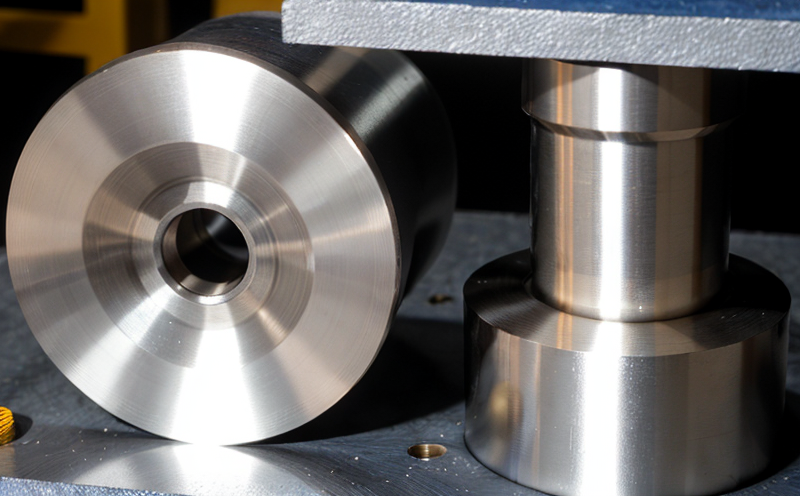ISO 23717 Elastic Modulus Determination of Nanostructured Metals
The determination of elastic modulus using ISO 23717 is a crucial step in understanding and validating the mechanical properties of nanostructured metals. This standard provides a robust framework for testing, ensuring that materials are safe and perform as expected under various conditions.
Testing according to ISO 23717 involves several key steps, starting with specimen preparation. It's essential to ensure that the sample reflects the true nature of the material being tested. For nanostructured metals, this often means preparing small, homogeneous samples that can be accurately measured and analyzed. The size of these samples is critical; they must be sufficiently large to provide reliable data but not so large that they introduce variability due to inhomogeneity.
The testing process itself relies on advanced mechanical testing equipment capable of applying precise force while measuring the resulting deformation with high accuracy. This requires specialized loading fixtures designed to accommodate nanostructured materials without damaging them during the test. The sample is placed under controlled stress, and the resulting strain is measured using highly sensitive displacement transducers or extensometers.
Once the test is complete, the data collected is analyzed to calculate the elastic modulus. This value represents the stiffness of the material, indicating how it resists deformation when subjected to an external force. Understanding this property is vital for applications ranging from aerospace structures to consumer electronics, where both strength and flexibility are critical.
The precision required in these tests makes ISO 23717 a valuable tool for researchers and engineers working with nanostructured metals. By adhering strictly to the procedures outlined in this standard, laboratories can ensure that their results are comparable and reliable across different studies and applications.
Furthermore, compliance with international standards like ISO 23717 is increasingly important as industries strive to meet regulatory requirements while maintaining high-quality standards. This ensures that materials used in critical applications such as medical devices or automotive components meet the necessary safety and performance criteria.
The ability to accurately determine elastic modulus through this method also supports ongoing research into new nanostructured metal alloys, helping scientists discover potential improvements for existing technologies and develop innovative solutions for future challenges.
Benefits
- Precision: Ensures accurate measurements of elastic modulus in nanostructured metals, critical for understanding material behavior at a microscopic level.
- Standardization: Provides uniform testing procedures that facilitate comparison across different studies and laboratories worldwide.
- Regulatory Compliance: Meets the requirements of international standards, ensuring that materials meet necessary safety and performance criteria.
- Innovation Support: Facilitates research into new nanostructured alloys by providing reliable data on material properties.
Eurolab Advantages
EuroLab offers comprehensive services tailored to the unique challenges of testing nanostructured metals according to ISO 23717. Our team of experienced professionals ensures that every aspect of specimen preparation and testing adheres strictly to the standard's requirements, providing clients with accurate, reliable results.
With state-of-the-art equipment, we offer precise mechanical tests that deliver high-quality data, making EuroLab a leader in this field. We also provide detailed reports that include all relevant information from the testing process, allowing our customers to make informed decisions based on solid evidence.
Customer Impact and Satisfaction
Our clients benefit from the precision and reliability of our tests, which are essential for ensuring product quality and safety. By partnering with EuroLab, companies can demonstrate compliance with international standards, enhancing their reputation in the market. The detailed reports we provide also assist researchers in advancing knowledge about nanostructured metals.
EuroLab's commitment to excellence has earned us a high level of customer satisfaction across various industries. We are proud to have contributed to successful projects and innovations that rely on accurate mechanical testing.





